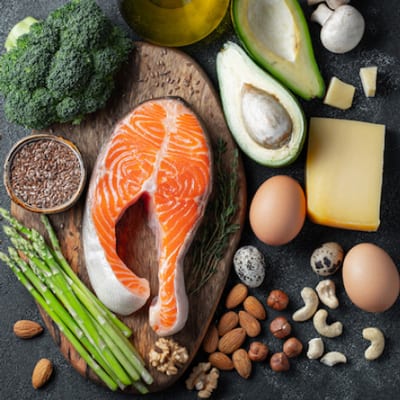Whether you want to shed some pesky extra kilos or make significant and long-lasting changes to your weight, these diets are what’s hot for 2019.
Best Diets for weight loss in 2019
Keto for weight loss
The ketogenic – or keto – diet is very popular for weight loss in 2019. It consists of eating foods rich in fats, moderate in protein, but very low in carbohydrates and it causes the body to go into a state called ketosis. The diet can be very effective because once the body is in ketosis and starved for its preferred fuel glucose, the body’s chemistry changes and it begins to aggressively burn its fat stores. Some studies recommend keto only for short term weight loss. For example, according to a large study presented today at ESC Congress 2018, people who consumed a low carbohydtrate diet were at greater risk of premature death. With study author Professor Banach saying: “Low carbohydrate diets might be useful in the short term to lose weight, lower blood pressure, and improve blood glucose control, but our study suggests that in the long-term they are linked with an increased risk of death from any cause, and deaths due to cardiovascular disease, cerebrovascular disease, and cancer.”
For more on the keto diet go to:
https://www.mindfood.com/article/not-losing-weight-on-the-keto-diet-heres-why/
https://www.mindfood.com/article/protein-shake-fuelling-your-keto-diet/
DASH Diet
DASH stands for Dietary Approaches to Stop Hypertension. The DASH diet plan was developed to lower blood pressure without medication, by reducing the sodium in your diet and eating a variety of foods rich in nutrients such as potassium, calcium and magnesium. While it wasn’t developed as a weight-loss program, it generally includes about 2000 calories a day of healthy food choices so has been found to help with weight loss.
Wholefood Less Calories
A new study by the NIH found that people eating ultra-processed foods ate more calories and gained more weight than when they ate a minimally processed diet. For the study the foods that are considered “ultra-processed” have ingredients predominantly found in industrial food manufacturing, such as hydrogenated oils, high-fructose corn syrup, flavoring agents, and emulsifiers. For example, an ultra-processed breakfast might consist of a bagel with cream cheese, while the unprocessed breakfast was oatmeal with bananas, walnuts, and milk. The researchers found that on the ultra-processed diet, people ate about 500 calories more per day than they did on the unprocessed diet. They also ate faster on the ultra-processed diet and gained weight, whereas they lost weight on the unprocessed diet.







